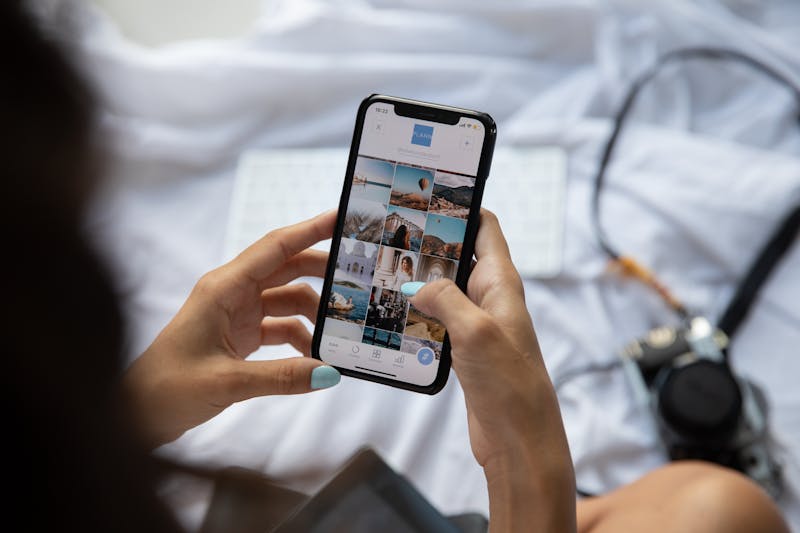The Role of Virtual Events in Influencer-Brand Collaborations
In the rapidly evolving digital landscape, virtual events have emerged as a potent tool for influencer collaborations and brand partnerships. As travel restrictions shaped our new normal, brands pivoted towards innovative ways to connect with influencers and audiences virtually. This shift has opened up a world of opportunities for influencers and brands to collaborate seamlessly, transcending geographical boundaries.
In this comprehensive guide, we'll explore how virtual events have revolutionized influencer-brand collaborations, the benefits they offer, and actionable strategies to leverage them effectively.
Table of Contents
- Introduction to Virtual Events
- The Rise of Virtual Events
- Benefits of Virtual Events for Influencer Collaborations
- Case Studies: Successful Virtual Events
- Tips for Hosting Effective Virtual Events
- Measuring Success of Virtual Events
- Future Trends in Virtual Events and Influencer Collaborations
- Conclusion
Introduction to Virtual Events
Virtual events encompass a wide range of online gatherings including webinars, live streams, virtual conferences, and online product launches. Unlike traditional events, these gatherings take place in a completely virtual environment, employing various platforms that facilitate real-time interaction and engagement.
The Rise of Virtual Events
Pandemic-Induced Shift
The COVID-19 pandemic played a pivotal role in accelerating the adoption of virtual events. With physical gatherings restricted, brands and influencers needed an alternative to foster connections and engage with their audiences.
Technological Advancements
Advancements in technology have made it feasible to host large-scale virtual events. High-speed internet connectivity, user-friendly platforms, and enhanced interactive tools have significantly contributed to their rise.
Benefits of Virtual Events for Influencer Collaborations
Global Reach
One of the most compelling advantages of virtual events is their ability to transcend geographical boundaries. Influencers from different parts of the world can participate in brand partnerships without logistical constraints.
Cost-Effective
Virtual events are cost-effective compared to traditional events. Brands save on venue rentals, travel expenses, and accommodation costs, allowing more budget to be allocated to influencer collaborations.
Enhanced Interaction
Interactive tools such as live Q&A sessions, polls, and chat functions increase audience engagement. Influencers can interact directly with their followers, making the experience more personal and memorable.
Data-Driven Insights
Virtual events facilitate the collection of valuable data. Brands can track attendee behavior, engagement metrics, and feedback in real-time, allowing for better decision-making in future influencer collaborations.
Case Studies: Successful Virtual Events
1. Fenty Beauty: Virtual Product Launch
Fenty Beauty transitioned its product launch to a virtual event, leveraging the influence of top beauty influencers. The event included live product demonstrations, Q&A sessions, and exclusive giveaways. The virtual launch generated significant buzz and achieved wide reach.
2. Adidas: Virtual Fitness Challenge
Adidas partnered with fitness influencers to host a virtual fitness challenge. Participants joined live workout sessions, received fitness tips, and could interact with the influencers in real-time. The event saw immense participation and helped strengthen Adidas' community engagement.
Tips for Hosting Effective Virtual Events
Choose the Right Platform
Selecting a platform that aligns with your event goals is crucial. Consider factors such as audience size, interactive features, and ease of use. Popular platforms include Zoom, Hopin, and Instagram Live.
Promote the Event
Effective promotion is key to attracting attendees. Utilize social media, email marketing, and influencer shoutouts to create buzz around your virtual event.
Engaging Content
Ensure the content is engaging and valuable to your audience. Incorporate elements like live demonstrations, giveaways, and polls to keep the audience interested.
Technical Preparation
Technical glitches can mar the success of your virtual event. Conduct rehearsals, ensure a stable internet connection, and have technical support on standby to address any issues.
Measuring Success of Virtual Events
Attendance Metrics
Track the number of registrations and actual attendance to gauge the event's reach.
Engagement Levels
Measure the level of audience engagement through tools like polls, survey responses, and chat activity during the event.
Social Media Mentions
Monitor the event's impact on social media through mentions, hashtags, and shares. This provides insight into the event's broader reach and reception.
Post-Event Feedback
Gather feedback from attendees to understand their experience. This helps in identifying areas of improvement for future events.
Future Trends in Virtual Events and Influencer Collaborations
Hybrid Events
The future may see a blend of physical and virtual elements, known as hybrid events. This approach offers the advantages of both formats, providing greater flexibility and reach.
Augmented Reality (AR)
AR technology promises to revolutionize virtual events by offering immersive experiences. Influencers and brands can create interactive and visually appealing events, thereby boosting engagement.
Personalized Experiences
As data collection becomes more sophisticated, brands can offer personalized experiences to attendees. Tailored content and targeted interactions will enhance the overall event experience.
Conclusion
Virtual events have undeniably transformed the landscape of influencer-brand collaborations. They offer a cost-effective, interactive, and far-reaching platform for brands and influencers to connect with their audiences. By understanding the benefits and employing effective strategies, brands can leverage virtual events to foster meaningful and successful partnerships with influencers.
As we move forward, embracing emerging trends and technologies will be crucial in staying ahead in the competitive digital space. Virtual events are here to stay, and they will continue to play a central role in the evolving dynamics of influencer collaborations and brand partnerships.

